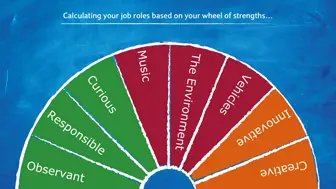ABILITY
the capability to do something - while skill can be defined as the ability to do something well

GlobalCnet links to the original thought, research, new ideas, and found expert advice. We have assembled extensive information and facts to inspire YOU to further your education, skills, and desires in your specific subjects. When you click on a blue link, you arrive at a website, do your research, and observe all the other articles available to you. Record what you need. Share what you learned.
GlobalCnet connected you to make better-informed decisions.
This is a teaching and informative Web Site again, presenting original authors, like Harvard University, MedNet, Unstuck.com, Readers Digest, Mental Health, and documents from millions of Web Sites that were written, published, and illustrated with specific content to expand your knowledge for personal growth, health, and answers. All this WWW content was meant for your reading and answers,
GlobalCnet just connected you.
We hope you use all information for further answerers, ideas for more exploration, and the wisdom to share discoveries with others. It is all about having the right fast or safe connections. Everything has already been discovered, be smart, use proven methods and spin your solutions to fit your needs.
If you have any questions or comments or just to say hello...leave webmail.
Quick links to information and new ideas. click here.
OK...you are now on GlobalCnet. You can use the SEARCH BAR to find subject information quickly or all the pages. Your visit will award an organized starting point leading to answers to your challenge.......just do it. Type in a word and hit search.
- Michael J. Malette, PhD
Founder, Global Connection Networks, Inc.
Your Unique Ability is a combination of the things you're really good at and also have a superior passion for. But don't restrict yourself to thinking of it just in terms of work. Stretch yourself beyond that and think of the ways you create value at home, at school, and with family and friends.
Your abilities are what you can do naturally. For example, you may have a natural ability for working with numbers, people, or machinery. Skills are learned. For example, you may be skilled at selling things, performing basic math, or rebuilding car motors. They are set in our mind through a number of practical Life Skills:

5 Ways to find out what your strrengths are.......
One of the best ways to help you decide what kinds of jobs might suit you is to ask yourself, and those around you, some questions related to who you are, your strengths and interests. Also think about what jobs are in demand and expected to continue growing. Sound good? Here are 5 tips to get you started:
1. Ask around A great way to find out more about yourself is to ask people you like, trust and respect what they think you’re best at. Why not make a list of people you can ask about the kinds of jobs they think might suit your strengths and personality, and why? They could be members of your family, a teacher or lecturer or somebody else you’re close to. If you’re not sure how or what to ask about, here are some ideas to get you started.
2. Discover your personality Check out the module, ‘Discover your personality’ for tips on how to get a better understanding of what makes you tick. Thinking about your personality is a great way to start identifying the kind of jobs which could be a good match.
3. Write down what you do Over the course of a week, think about the 5 things you most enjoy doing and write them down. Challenge yourself to really think about why it is you like them. For example:
I have a blog that I
update regularly with opinions, short stories and other bits and pieces I find around the web. I set aside time in the week to write and find stuff to publish, then I schedule posts on social media
that link to my site.
In this instance, it’s clear that this person likes being organised, staying up to date with popular culture, and works well alone. Thinking about the kinds of activities you enjoy, or naturally find
yourself doing, is a great way to help identify your strengths and skills.
4. Look for patterns Once you have answers from a few different places, highlight any areas
that come up frequently, or character traits that lots of people have identified. Try asking yourself the same questions and compare the answers to see if you agree. The skills which come up most
frequently will most likely be your strongest. Now you can use the Wheel of Strengths to match these up with potential careers.
5. Keep an open mind Some of the answers and results you get might be surprising, or highlight aspects of your personality that you
hadn’t considered. Don’t dismiss these. The idea is to get a better picture of yourself, and that includes the image you present to other people, as well as what you’re good at and things that you
could improve. These unexpected qualities might lend themselves to an area of work that you had never considered before.
Look at the required skills section on some job adverts and compare which ones you have. You will always be growing your skills so don’t worry if you don’t get complete matches. For more tips and
guidance on developing your skills, check out the modules here.










